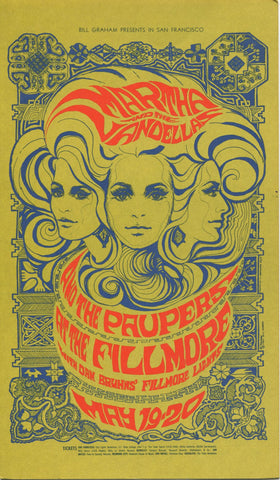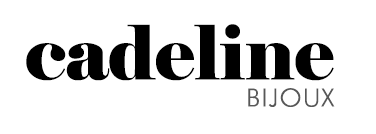
Since the beginnings of Cadeline Bijoux, I have realized that when I borrow the term “Art Deco” to describe the style of one of my creations, it is easily visualized by my clients: retro, 1920s, geometry …
But when I use the term Art Nouveau, it's another story!
I am often asked the question: “ what do you mean by Art Nouveau?” »
But yes, basically, what is an Art Nouveau style creation?
Here are 3 tips for easily spotting the Art Nouveau style:
-
its time
-
his style
-
His origin
-
The era of Art Nouveau:
Art Nouveau was born in the 1890s.
In Belgium its real starting point is the construction of the Hôtel Tassel by Victor Horta . This sublime building is now classified as a UNESCO World Heritage Site. You can discover it on rue Paul-Émile Janson nᵒ 6 in Brussels.
 |
The Tassel Hotel, Victor Horta, 1893 |
Art Nouveau is said to be typically Belgian but it is found almost everywhere in Europe and mainly:
In Spain with Gaudi and his majestic architecture. You have undoubtedly already seen them but perhaps you did not know that they were Art Nouveau! Indeed, in Spain Art Nouveau is called Catalan Modernism.

|
Casa Batlló, Antoni Gaudí, 1906 |
In France with Hector Guimard and his famous Parisian metro entrances. They are used by thousands of commuters but how many know their origins or even the style? When you travel to Paris, don't hesitate to impress your friends with this information, it's a gift ;)
 |
Porte Dauphine, Edicule by Hector Guimard, 1900 |
Without forgetting the Czech Republic with Alfons Mucha, a true versatile artist: poster designer, illustrator, graphic designer, painter, jeweler and Czechoslovak art teacher. That said, it was in Paris that he found success, notably thanks to his numerous collaborations with the French actress Sarah Bernhardt. Including this famous poster:
 |
Alfons Mucha, The Lady of the Camellias, 1896 |
Mainly known for his posters, Mucha also creates magnificent jewelry!
 |
Alfons Mucha, decorative documents |
Art Nouveau ended in 1910, its period of life was very short, as was that of its successor: Art Deco.
-
The Art Nouveau style:
The main references of Art Nouveau are nature and woman .
-
Nature as a model:
With its curves and dynamic lines, Art Nouveau draws its inspiration directly from the heart of the plant and animal world and Japanese art. Moreover, some artists of the movement are also botanists. We could read on the door of the workshop of the famous glassmaker Emile Gallet: " My root is in the depths of the woods " , a nice summary of the sources of inspiration of Art Nouveau.
 |
Emile Gallé, Mushroom lamp, Nancy school |
The works are generally very detailed, very ornamental. All curves, softly, they are also very feminine. Art Nouveau does not like symmetry, it likes to reproduce generous and indomitable forms, as in nature, a model of perfect beauty.
When asked where his inspiration came from, Hector Guimard replied “ it is always nature that we must ask for advice ”. A very nice quote!
-
The woman: liberated?
Women occupy a central place in the works of the Art Nouveau movement.
She is often represented as a symbol of nature, most often active, master of her destiny or even erotic. Its curves are a parallel to the curves present in nature.
 |
Salomé, Alphons Mucha, 1897 |
But it is also used for promotional purposes: Art Nouveau is found in many of the city's advertising posters and advertisements in the major women's magazines of the moment, the female body is eroticized to better sell cigarettes or a theater. show. The trend is therefore not new.
 |
Job, Alphons Mucha, 1894 |
-
His origin :
Art Nouveau is the rejection of the industrial style, of tasteless and personalityless furniture, specific to factory manufacturing.
Its goal: to revalorize craftsmanship and nature!
It is therefore a trend that will encompass many different trades: marquetry, glassmaking, painting, jewelry creation, architecture, etc.
It is a Total Art: both decorative and architectural, both minor (eg: jewelry, glassware) and major (eg: painting, architecture).
We therefore find it in architecture, with e.g. Arthur Nelissen and his eponymous house:
 |
Nelissen House, Arthur Nelissen, 1905 |
In the graphic arts with e.g. Théophile Alexandre Steinlen and his famous Black Cat Tour:
 |
Tour of the Black Cat, Théophile Alexandre Steinlen, 1896 |
And in the smallest details, as with these refined door handles of the Hôtel Max Hallet, a Brussels building designed by Victor Horta.
 |
Hotel Max Hallet, Victor Horta, 1903 |
After that ?
It's incredible but Art Nouveau almost fell into oblivion! Historians of the 30s and 40s, not knowing how to classify it, preferred to forget it. We must therefore thank the young graphic artists and designers of the sixties who took pleasure in reproducing the movement's posters.
An exhibition dedicated to Mucha followed in 1963 and in 1966 the first psychedelic posters appeared in San Francisco:
 |
Martha and the Vandellas, Graham Maclean, 1967 |
Art Nouveau comes back to life, it is modernized but it is a true homage with its wavy hair, its plant and of course feminine forms.
 |
Psychedelic ladies, Gunilla Rudling, 1970 |
All this is just a short summary of Art Nouveau, there is so much more to say and share, but I hope I have shed some light on this exciting movement!
Want to shine in society?
Here are the 3 essential points to recognize Art Nouveau:
- Plant inspiration.
- Curves and femininity.
- Minor art (remember: jewelry, glassware, etc.) and major art (painting, architecture, etc.).
You are now ready to identify Art Nouveau in the blink of an eye!
For further :
- Want to admire the most beautiful Art Nouveau houses in Brussels? Visits are organized free of charge: https://www.bravodiscovery.com/fr/activite/visite-gratuite-art-nouveau-a-bruxelles/
- Did you know that Brussels has its own Art Deco - Art Nouveau festival? This is the BANAD festival, it brings together guided tours of Art Nouveau and Art Deco interiors usually closed to the public. This concept is unique in Europe! All the information: https://www.banad.brussels/fr/
- The excellent video from the Musée d'Orsay about Art Nouveau: https://www.youtube.com/watch?v=bCG5Tknmq9M
- The blog article “Du Grand Art”: https://www.du-grand-art.fr/arts-decoratifs/19eme-siecle/art-nouveau/


1 comment
J’adore ! Merci pour cet article 😍